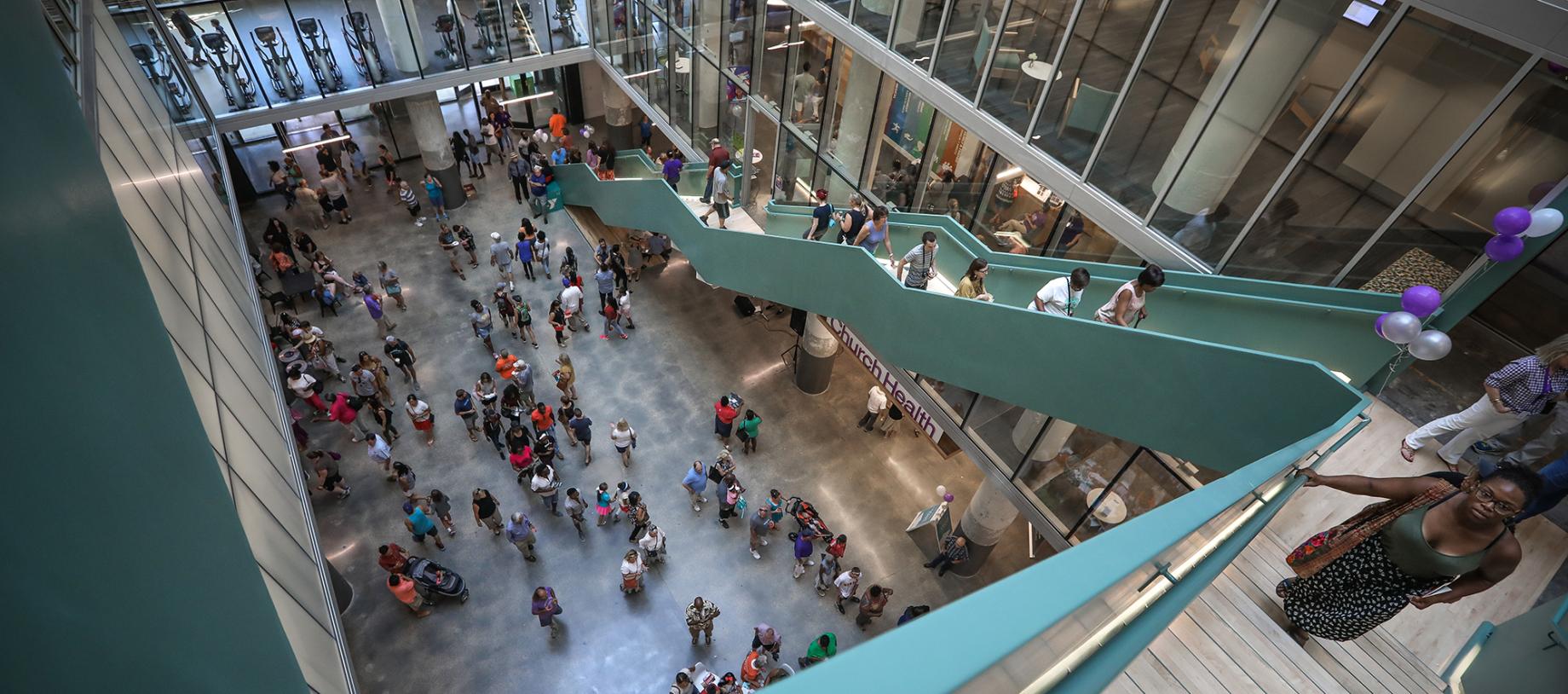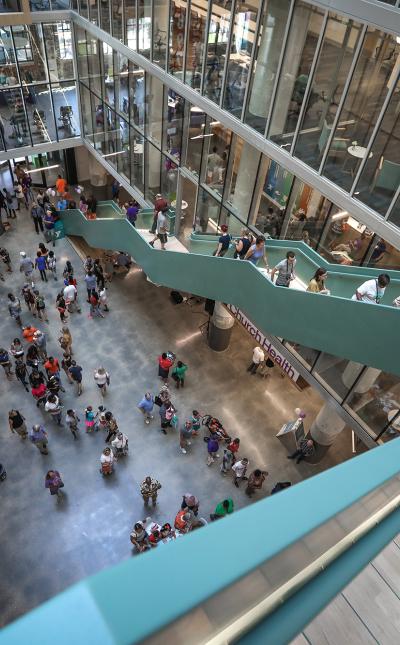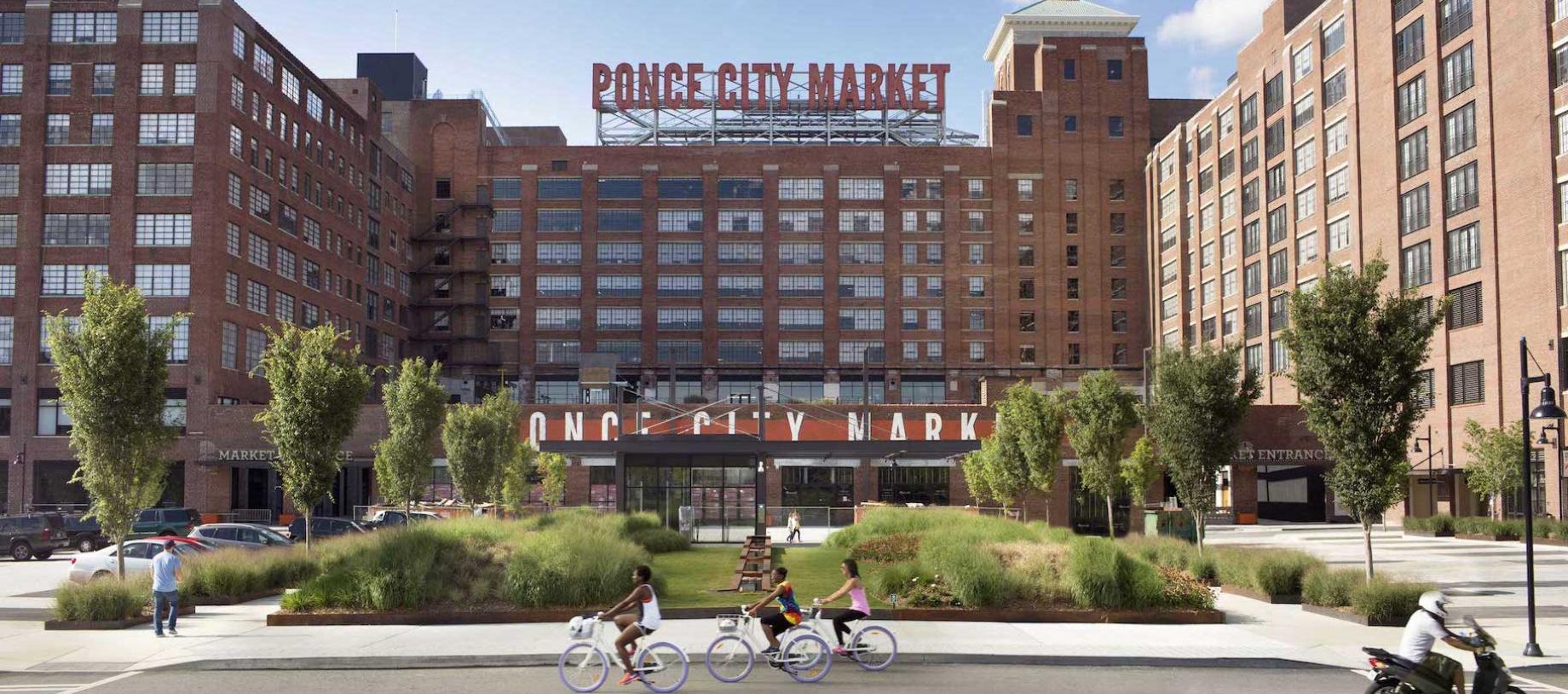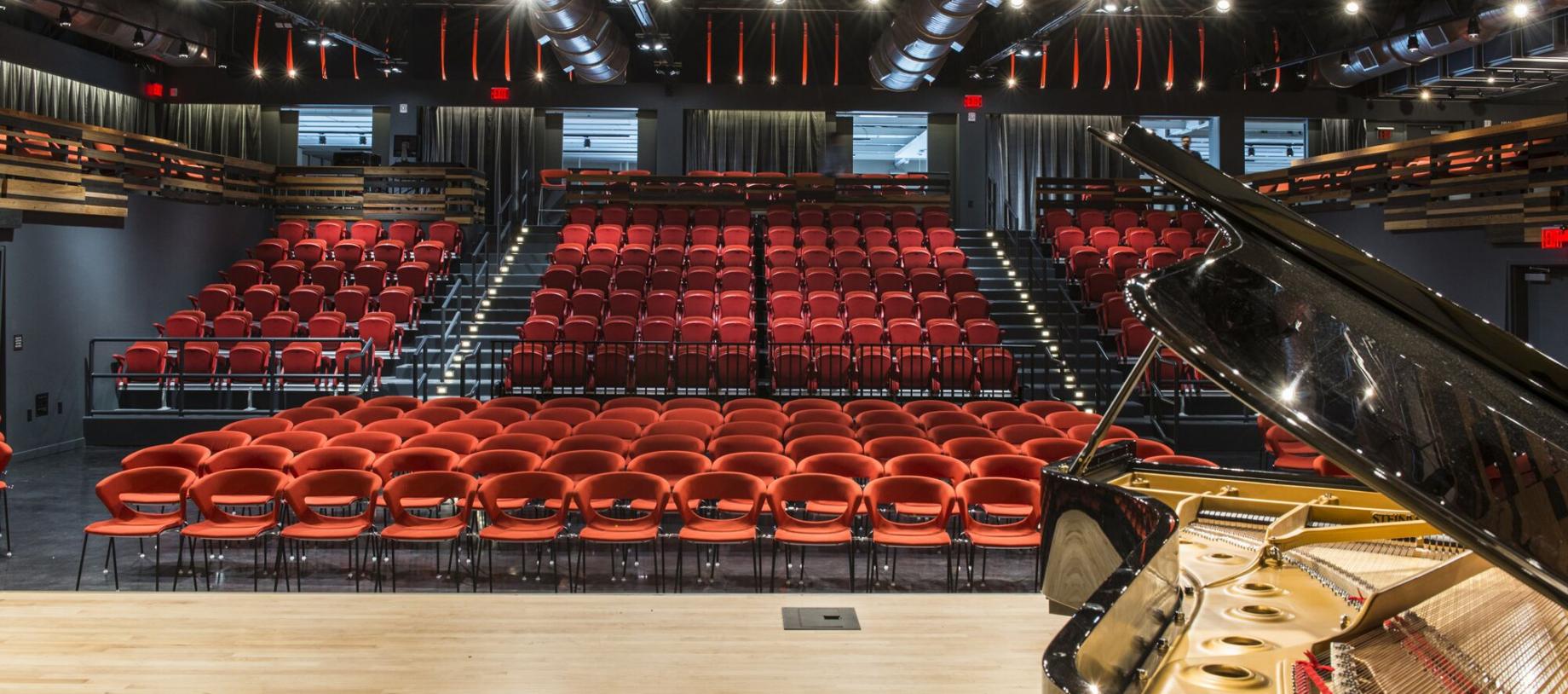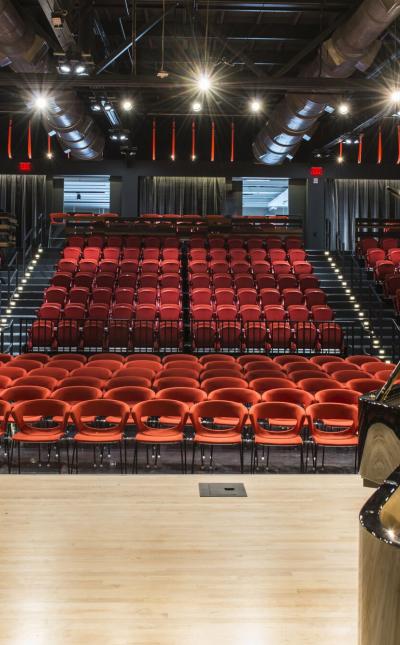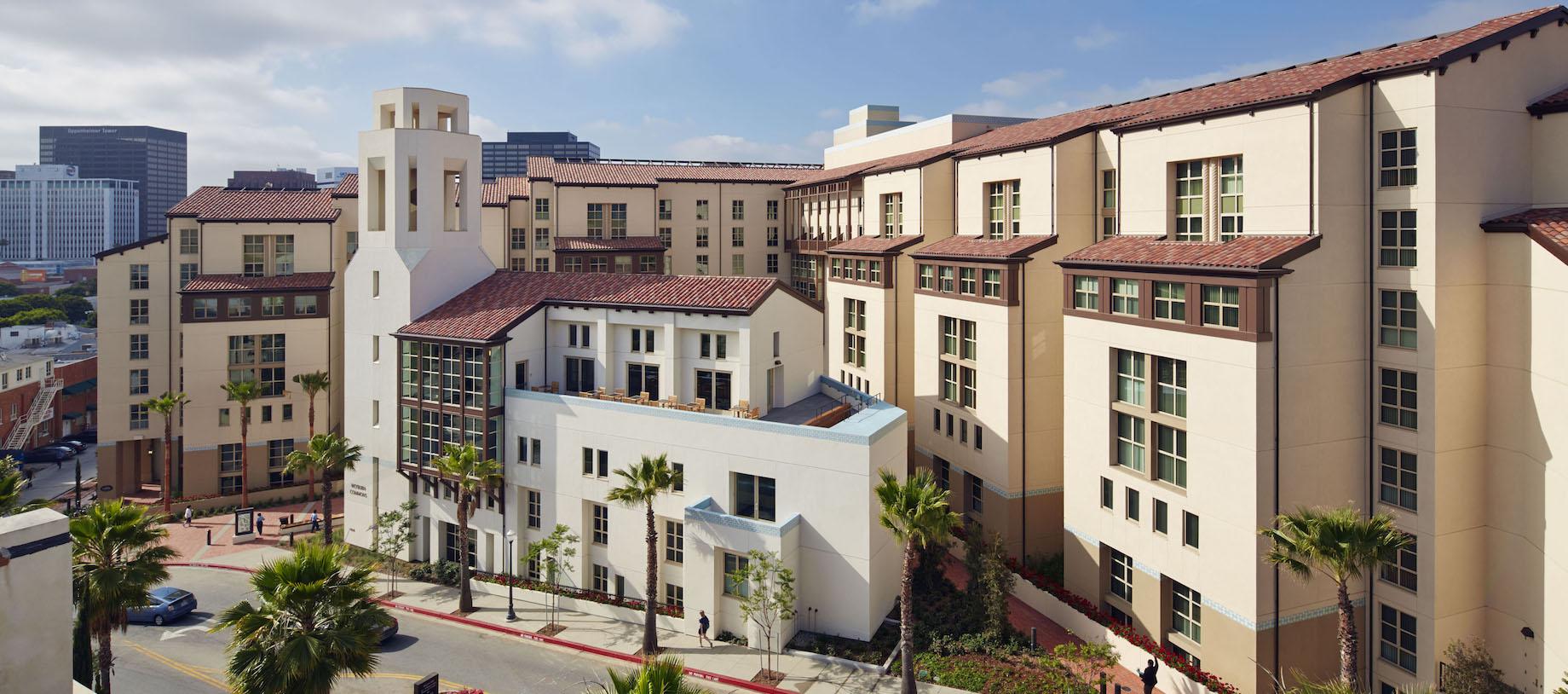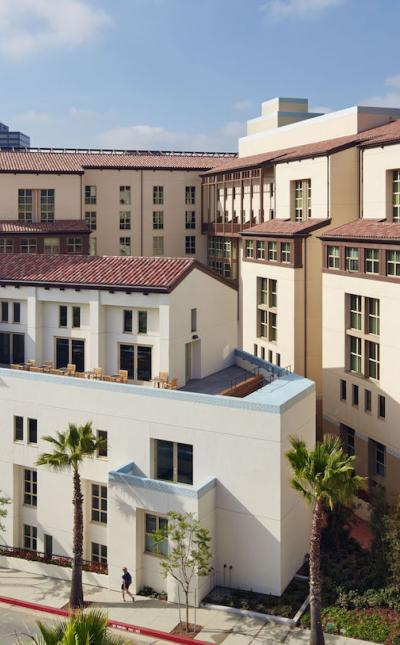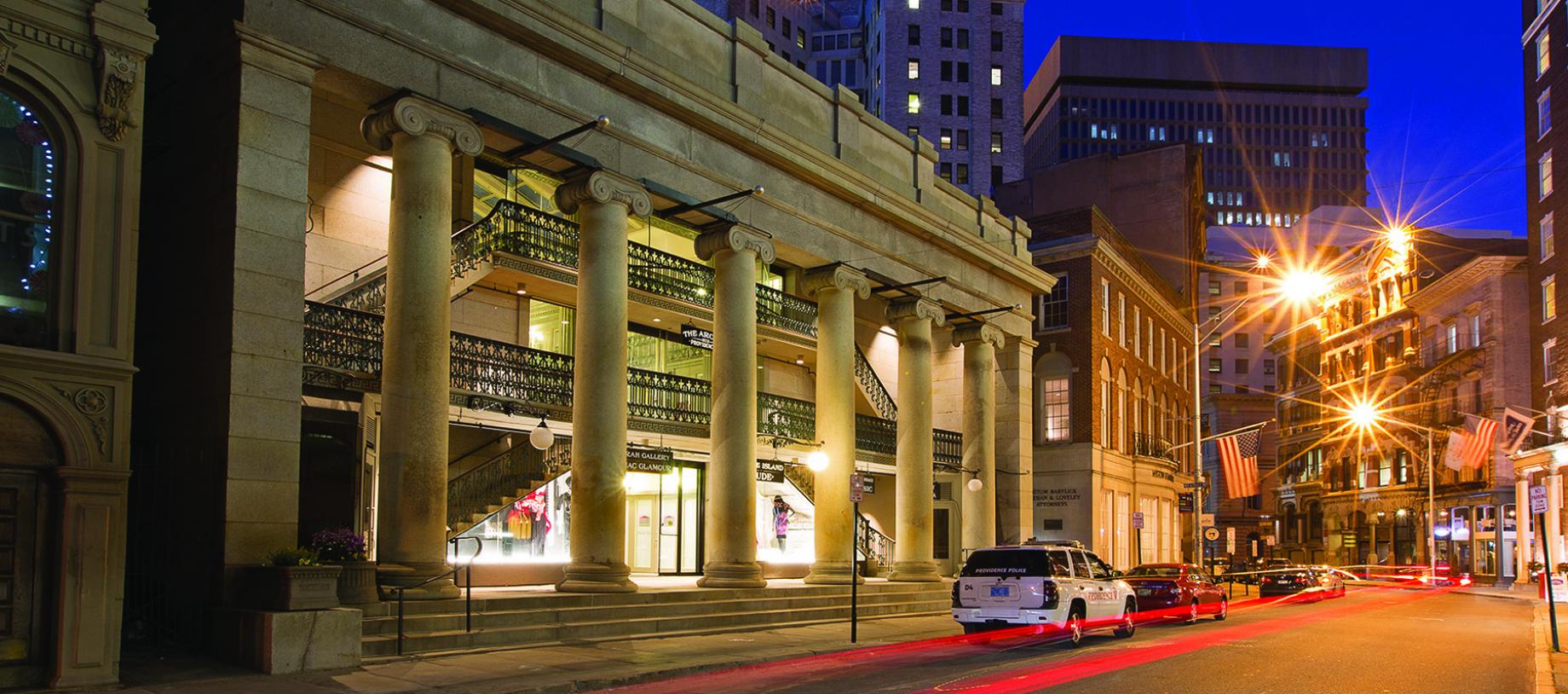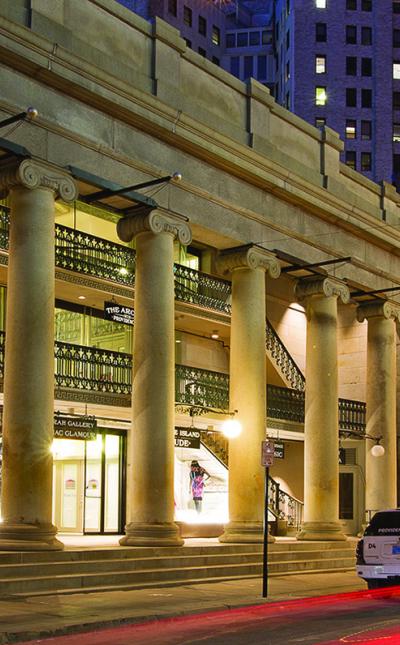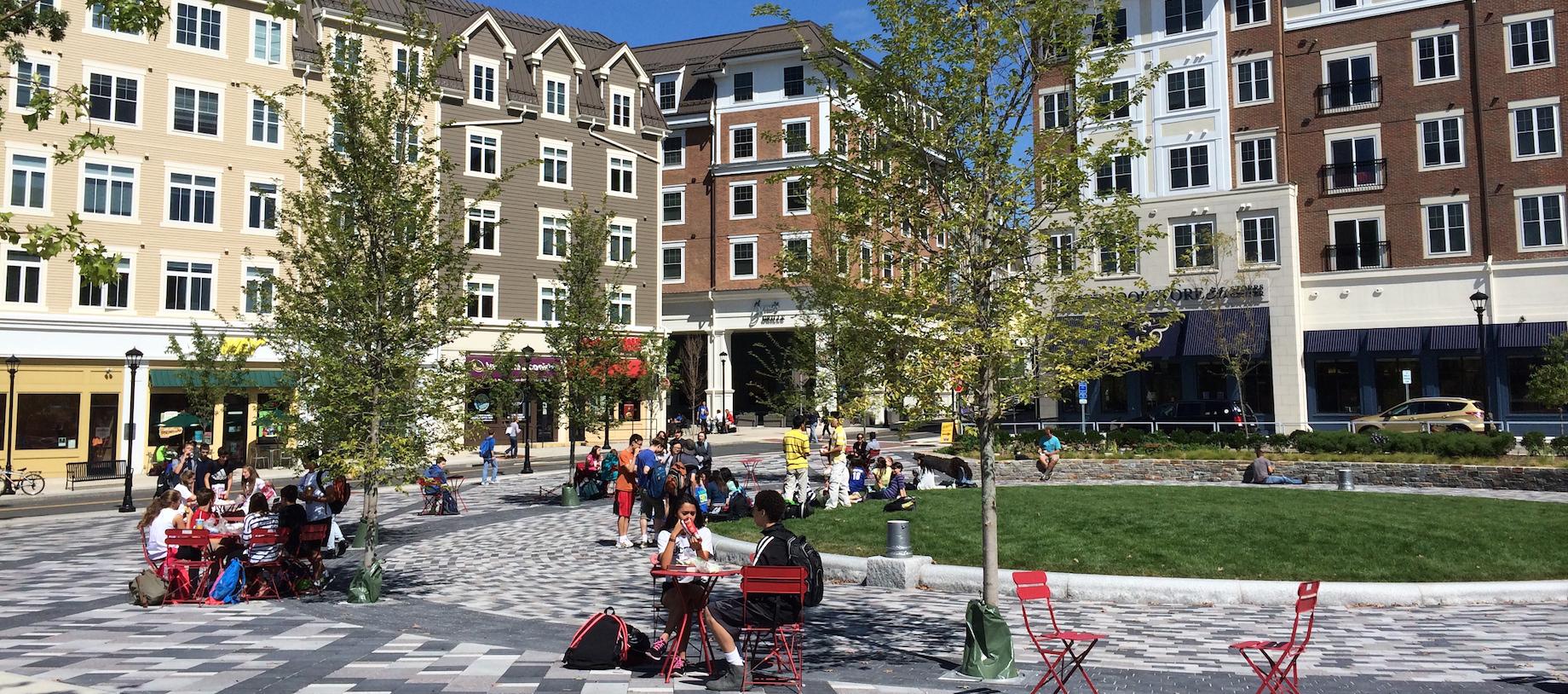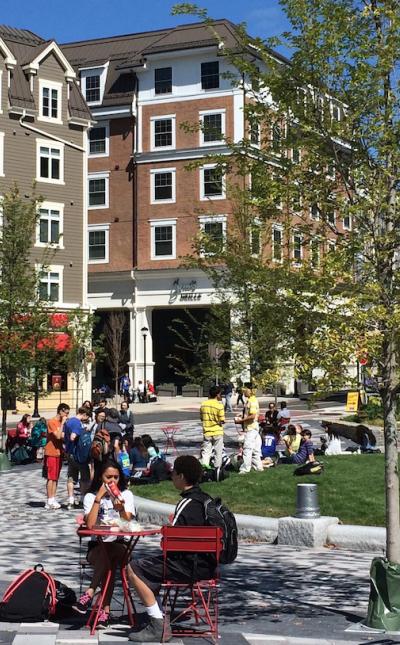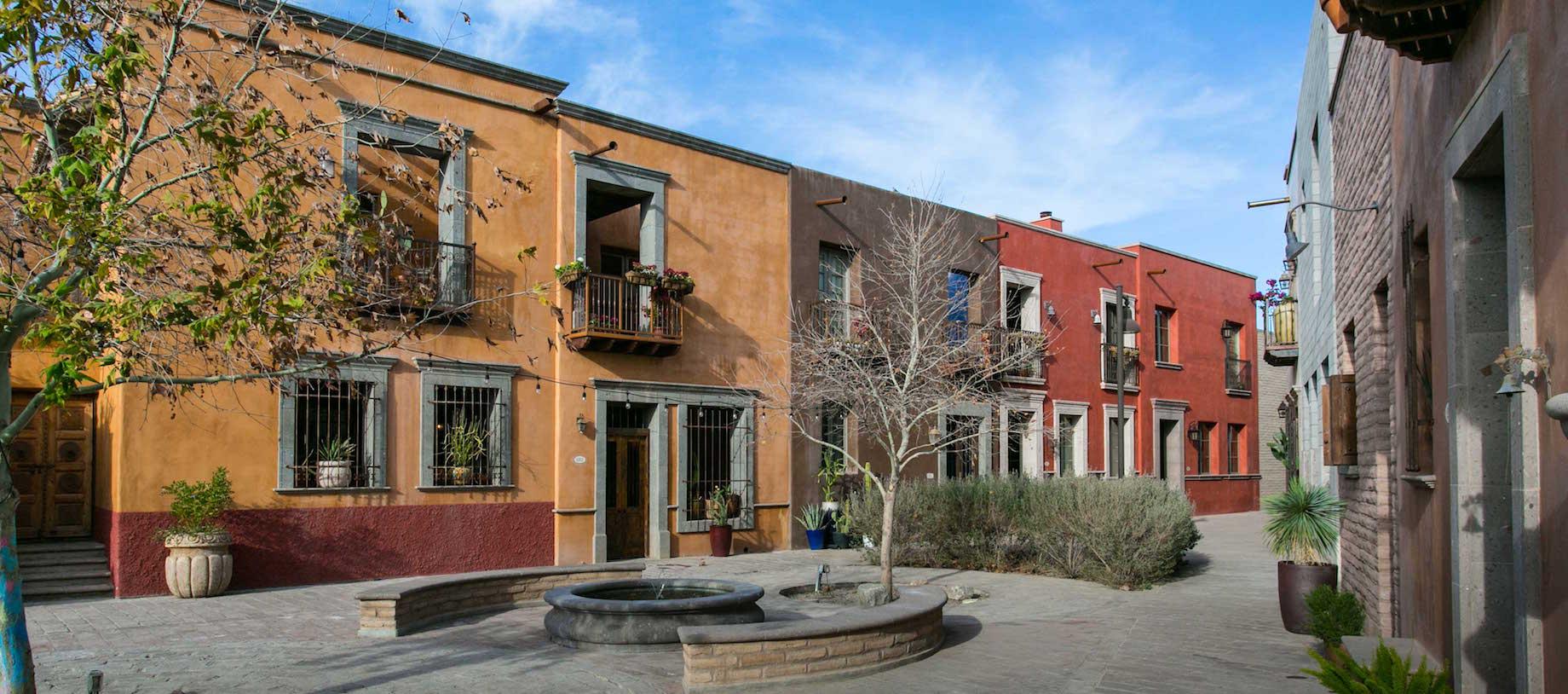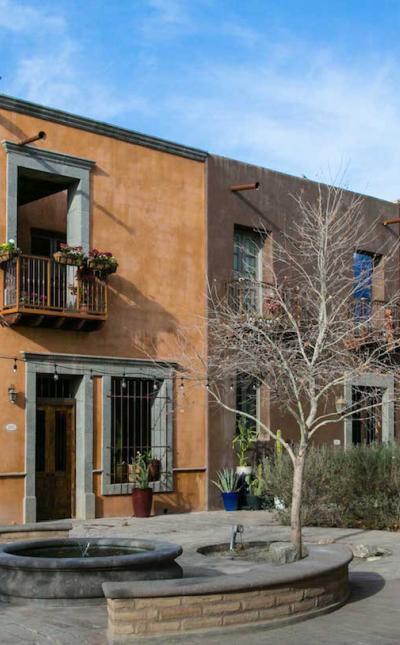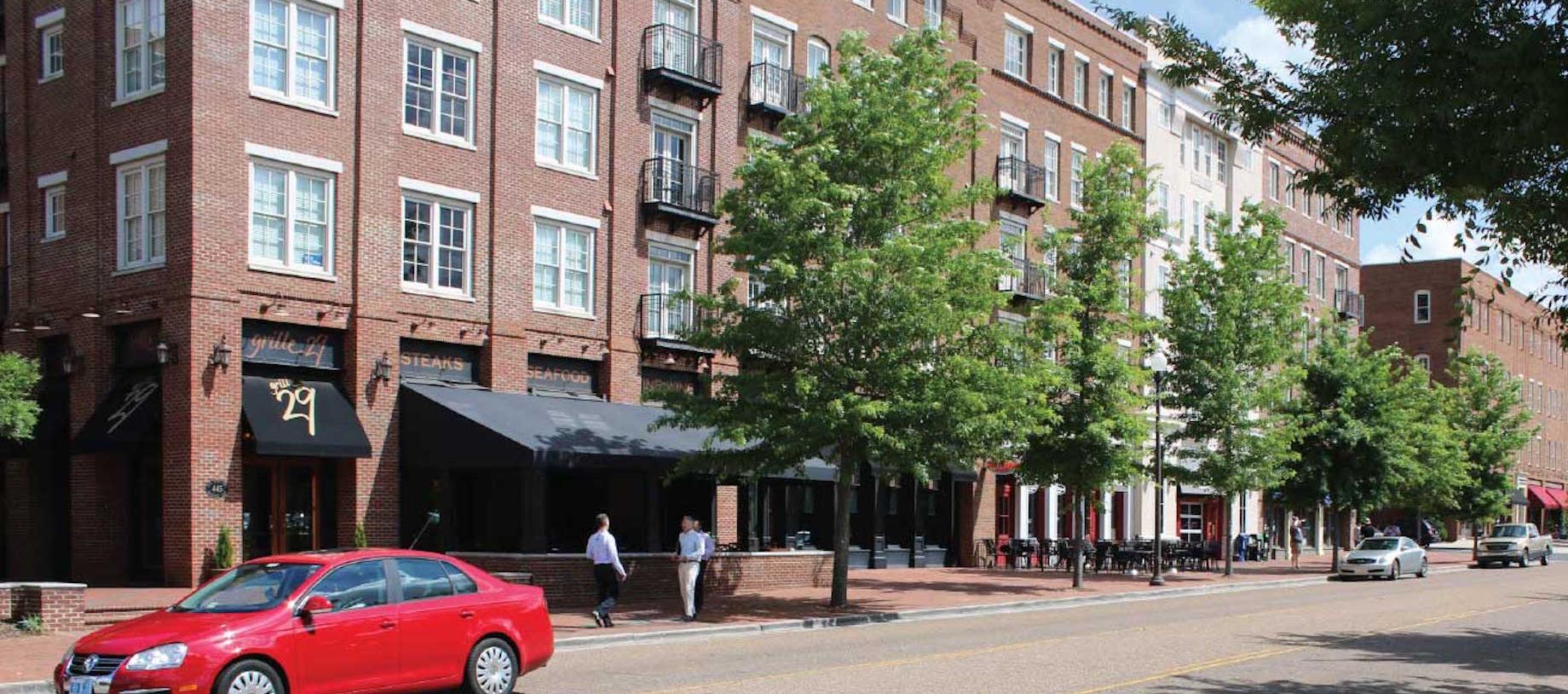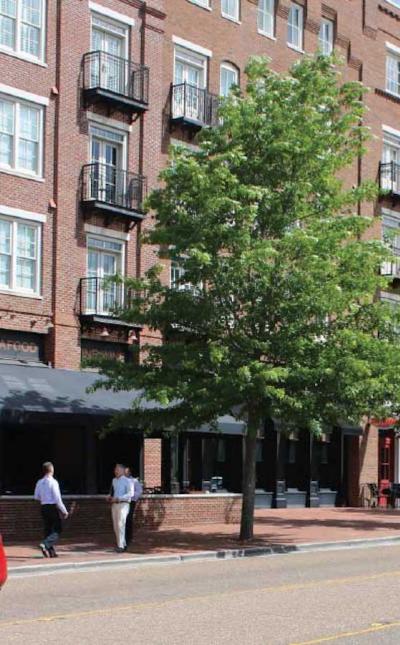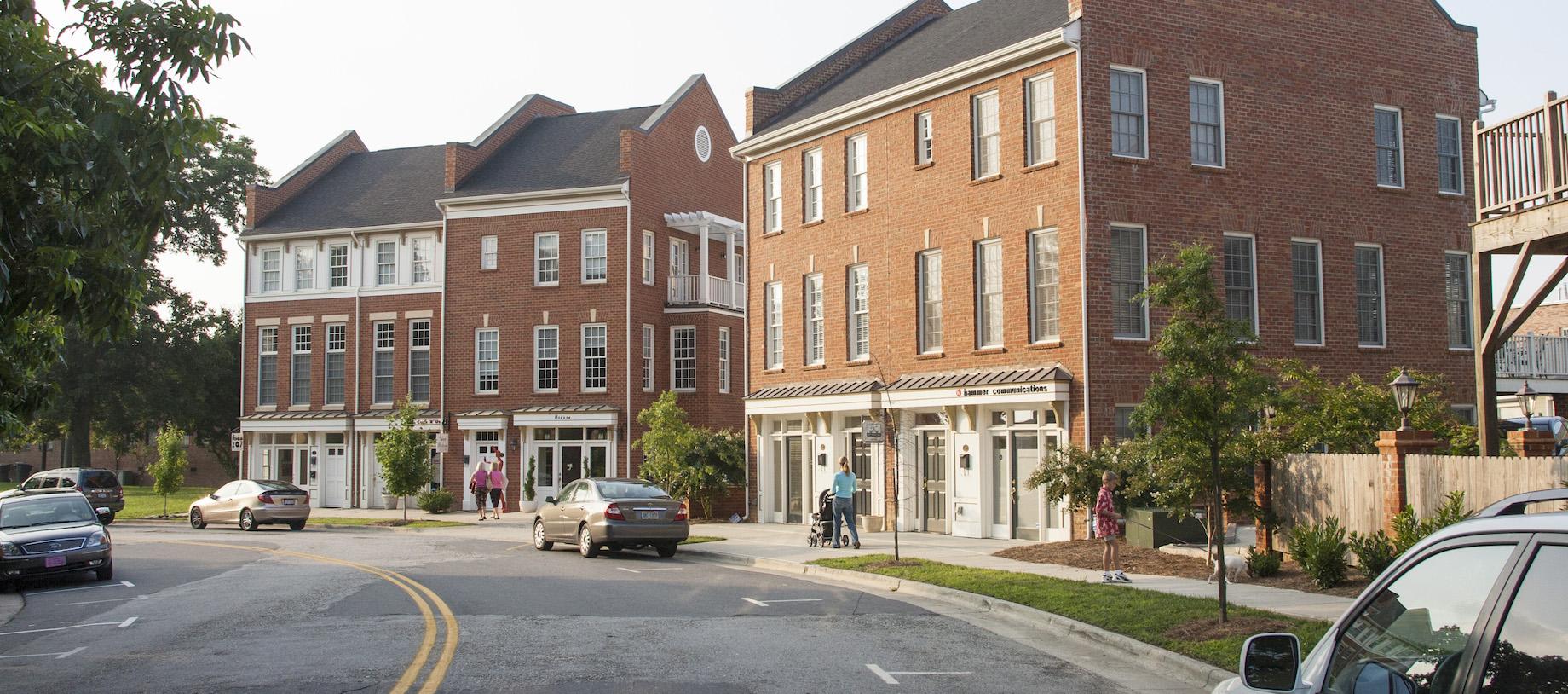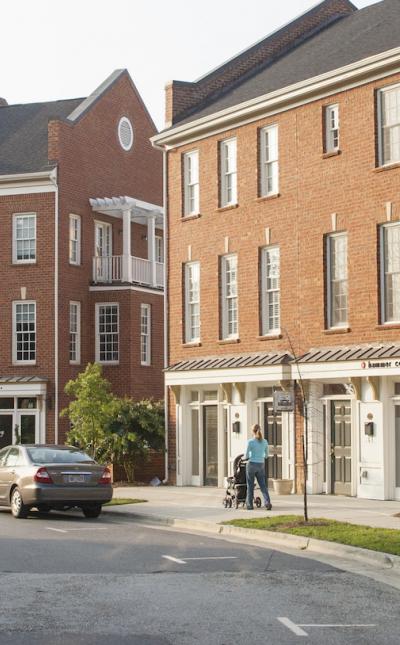What are CNU Legacy Projects?
Each year, in conjunction with its annual Congress, CNU invites municipalities and neighborhood organizations within the Congress's host region to apply for pro-bono technical assistance from leading urban design firms. Through public engagement and collaboration, CNU’s Legacy Projects strive to demonstrate the power of great urban design beyond the boundaries of each selected community, and targeted communities experience both short-term progress and long-lasting momentum.
Providence Hospital District Vision Plan
Providence, RI
Overview: Rhode Island Hospital, Hasbro Children’s Hospital, and Women & Infants Hospital share a nearly 150-acre campus located in Upper South Providence, about a mile away from Downtown Providence. The Hospital District’s inefficient use of nearly 50 acres of land for employee surface parking makes it an outlier among its peer urban hospital districts. Public investment in the Upper Southside in recent years has led to significant community development achievements and momentum. Now, the City is negotiating PILOT agreements with major property owners, potentially creating leverage for the City to encourage more efficient and productive land use patterns. A CNU Legacy Project to re-envision the surface lots would align well with the timeline of other City planning processes and priorities to improve stormwater management, urban heat island reduction, and multi-modal connections, in addition to an opportunity to study adding housing to the site.
Goals: The goal for the Providence Hospital District Vision Plan Legacy Project is to establish a shared vision for the redevelopment of underutilized land in Providence’s Hospital District to reconnect the area with the Southside of Providence, unlock community development and economic opportunity, and improve public and environmental health. A Legacy Project would address the heat island effect, storm water management challenges, and unpleasant pedestrian experience caused by the current volume of pavement. Conservative buildout estimates also indicate the Hospital District's surface lots have the development capacity for nearly 5,000 housing units.
Project Players: The project will be led by DPZ CoDesign in partnership with the City of Providence’s Department of Planning and Development, Providence Redevelopment Agency, South Providence Neighborhood Association, and Trinity Square Together. Zimmerman/Volk Associates (ZVA) has also provided this Legacy Project with an analysis of residential market potential for newly-introduced rental and for-sale housing units that could be developed within the Hospital District over the next five years. Urban3 has provided this Legacy Project with municipal economic analysis.
Charrette: The 4-day charrette will take place at the Liston Campus of the Community College of Rhode Island. In addition to thematic stakeholder meetings, public meetings will take place on March 10 at 6pm and on March 13 at 6pm. Access the charrette via the RIPTA 6 bus or with parking onsite.
Connecting with Hope: A Plan to Revitalize Hope Village
Hope, RI
Overview: Considerable planning has been done in recent years laying the groundwork for significant improvements to the village of Hope, the most densely populated and lowest income area, in the town of Scituate, RI. A small, ad hoc group of local citizens has been meeting occasionally over the past two years to discuss the future of the village of Hope and has come together around this opportunity. With support of the Scituate Town Council, the group has proposed a Legacy Project to develop a plan that would revitalize Hope by improving connectivity with the village and to the village. There is funding available but what has been lacking to allow tapping into the funding is a clear path forward.
Goals: Create connectivity within a walkable village with easy access to points of historic interest and nearby public open spaces along the upper Pawtuxet River. The Legacy Project will improve traffic patterns for safety and easy access to village amenities as well as the creation of parking areas to accommodate visitors. Connectivity planning would result in a village design that would enhance the current activities and promote the growth of small businesses within the village and other businesses that support local recreation.
Project Players: The project will be led by Historical Concepts in partnership with the Scituate Land Trust, Hope Associates, Scituate Emergency Management Agency, Hope Village Overlay, ad hoc resident committee, and Town of Scituate. Zimmerman/Volk Associates (ZVA) has also provided this Legacy Project with an analysis of housing in the area.
Charrette: The 3-day charrette will take place at the Hope Jackson Fire Company Administration Building. In addition to thematic stakeholder meetings, public meetings will take place on March 11 at 6:30pm and on March 13 at 12pm. On March 12 at 12pm, the public is invited to a session on housing with two nationally known, subject matter experts.
Love the Ave District
New Bedford, MA
Overview: The north end Acushnet Avenue commercial corridor is a distinct, diverse, multi-ethnic neighborhood characterized by its linear commercial spine of small business storefronts, triple-deckers, streets, and anchor park.The City and civic organizations recognize the assets of this neighborhood, and for over a decade have been engaged in a variety of strategic community planning initiatives, investments and improvements to advance and support business growth and neighborhood revitalization. Despite these efforts, pockets of disinvestment remain in this District with vacant storefronts and underutilized buildings. A Legacy Project could address distressed storefronts and contextual infill on vacant sites and reestablish a pedestrian friendly urban corridor.
Goals: This Legacy Project would focus on the continued revitalization of a traditional historic commercial corridor and nearby development sites within a neighborhood with a uniquely multicultural and immigrant population, addressing issues of underutilization, disinvestment, local economic development, public realm improvements, neighborhood safety and district identity. Two nodes of vacant and underutilized industrial brownfield sites which bookend a neighborhood park and future riverwalk trail could also benefit from a visioning exercise and a feasibility analysis to fully explore their redevelopment potential.
Project Players: The project will be led by Street Plans and Arup in partnership with the Department of City Planning (DCP), Love the Ave Partnership, Groundworks Southcoast, the Cape Verdean Association of New Bedford, and Southcoast Community Foundation.
Charrette: The 3-day charrette will take place at the Our Lady of Angel's Band Cultural Center. In addition to thematic stakeholder meetings, public meetings will take place on March 17 at 5:30pm and on March 19 at 5:30pm. Access the charrette via the SRTA 202 and 204 buses.

